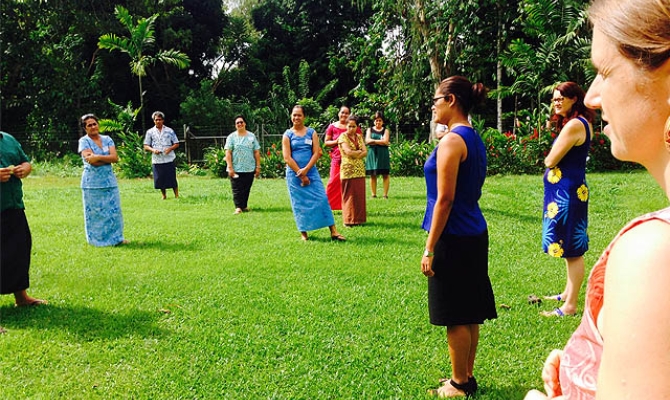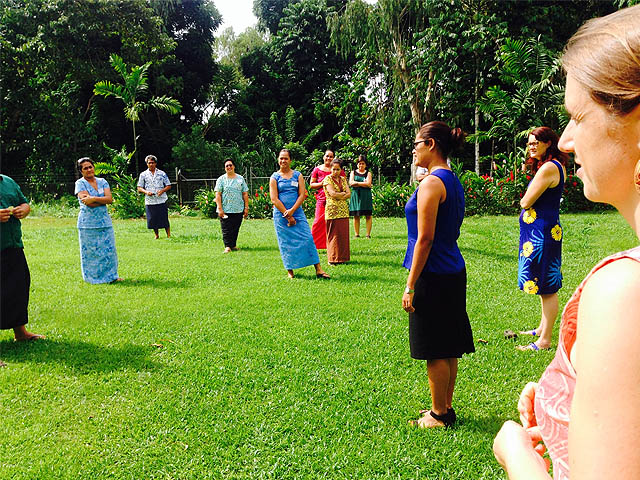
Climate Change Resilience
The Pacific Gender and Climate Change Toolkit was a highlight of a successful Pacific Gender and Climate Change Training that took place in Apia in March. The toolkit helps to provide real case studies and project documents as a focus point for activities and learning.
"The tools in the toolkit are so simple and easy to use, and can make the tiresome task of trying to mainstream gender into climate change responses and proposals so easy", stated Catherine Jones from United Nations Development Program.
While the toolkit was specifically designed for use of practitioners in Climate Change, it also has tools that can be used to analyse existing gender policies and general thematic policies. Part of the activities during the Pacific Gender and Climate Change Training saw participants analyse existing policies in place for strengthening.
"With just the strategic placing of key words in these policies, it can make all the difference in ensuring that both men and women's roles and responsibilities are addressed, instead of having to go through the tedious task of rewriting these documents" says Ms Marita Manley, one of the trainers of the workshop.

At the end of the two day training, David Sheppard reiterated that "this workshop further reinforces the growing recognition that gender equality is critical for sustainable development in our region, and also that partnerships are essential to ensure effective mainstreaming of gender into all sectors"
The Pacific Gender and Climate Change Training brought together representatives from the Ministry of Women Community and Social Development of Samoa as well as the Ministry of Natural Resources & Environment. Also present at the training were members from SPREP and Samoa's Family Health Association.
Participants were presented with Certificates of Professional Development for the completion of this training, a joint effort between SPREP, the Secretariat of the Pacific Community (SPC) and SPC/GIZ.
"The tools in the toolkit are so simple and easy to use, and can make the tiresome task of trying to mainstream gender into climate change responses and proposals so easy", stated Catherine Jones from United Nations Development Program.
While the toolkit was specifically designed for use of practitioners in Climate Change, it also has tools that can be used to analyse existing gender policies and general thematic policies. Part of the activities during the Pacific Gender and Climate Change Training saw participants analyse existing policies in place for strengthening.
"With just the strategic placing of key words in these policies, it can make all the difference in ensuring that both men and women's roles and responsibilities are addressed, instead of having to go through the tedious task of rewriting these documents" says Ms Marita Manley, one of the trainers of the workshop.

At the end of the two day training, David Sheppard reiterated that "this workshop further reinforces the growing recognition that gender equality is critical for sustainable development in our region, and also that partnerships are essential to ensure effective mainstreaming of gender into all sectors"
The Pacific Gender and Climate Change Training brought together representatives from the Ministry of Women Community and Social Development of Samoa as well as the Ministry of Natural Resources & Environment. Also present at the training were members from SPREP and Samoa's Family Health Association.
Participants were presented with Certificates of Professional Development for the completion of this training, a joint effort between SPREP, the Secretariat of the Pacific Community (SPC) and SPC/GIZ.